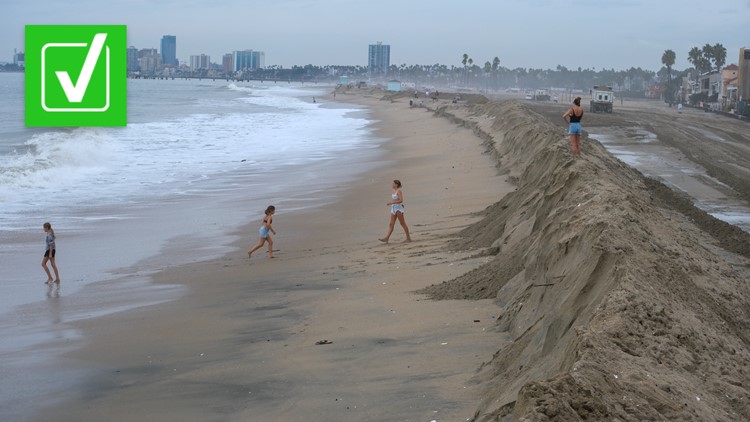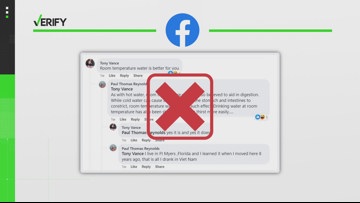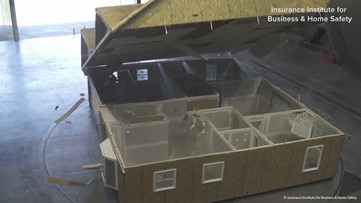Hurricane Hilary grew to a Category 4 strength off Mexico's Pacific Coast on Friday, Aug. 18 and could reach Southern California as a tropical storm by Sunday, Aug. 20.
The National Hurricane Center has issued a tropical storm watch for southern California for the first time in history. Strong to severe thunderstorms are also possible on Friday in south-central and southwest Arizona as a result of the storm.
News about the impending storm has some people online wondering about the history of tropical storms hitting California.
THE QUESTION
Has a tropical storm ever made landfall in California?
THE SOURCES
- The National Weather Service (NWS)
- The National Hurricane Center (NHC)
- A 2004 article published in the Bulletin of the American Meteorological Society
- Daniel Swain, Ph.D., a climate scientist at UCLA
- Eric Boldt, warning coordination meteorologist with NWS Los Angeles/Oxnard
THE ANSWER
Yes, a tropical storm last made landfall in California nearly 84 years ago.
WHAT WE FOUND
A tropical storm informally known as “El Cordonazo,” or “The Lash of St. Francis,” hit California in late September of 1939.
This is the last known tropical storm to make landfall in the state, Eric Boldt, a warning coordination meteorologist with the National Weather Service (NWS) Los Angeles/Oxnard, and a spokesperson for the National Hurricane Center (NHC) told VERIFY.
On Sept. 25, 1939, the tropical storm made landfall in San Pedro, California, which is located about 7 miles from Long Beach.
According to historical records from the National Weather Service, the storm brought anywhere from 5 inches to nearly a foot of rain to areas throughout southern California. The heavy rainfall led to flooding that killed up to 45 people and another 48 people died at sea, records show.
The 1939 tropical storm also caused $2 million in property damage, mostly to shipping, shore structures, power and communication lines and crops, according to a 2004 research article published in the Bulletin of the American Meteorological Society (AMS).
Residents were “generally unprepared” for the storm, which led the weather bureau to establish a forecast office in southern California. That office began operations in February 1940, NWS records show.
At least three more tropical storms impacted the southwestern United States during the 20th century but, unlike the 1939 storm, they first made landfall in Mexico before crossing over the border, the AMS article’s authors wrote.
More recently, in 2022, Hurricane Kay made landfall as a strong tropical storm in the Mexican state of Baja California Sur, bringing flooding rains and mudslides to Mexico and the southwestern United States.
But the 1939 storm isn’t the only tropical system to directly hit California in the state’s history.
The only known hurricane to strike the U.S. West Coast hit San Diego in early October 1858. According to NWS records, the hurricane brought 75-mph winds to the area and caused extensive property damage.
Tropical storms and hurricanes rarely reach California for several reasons, experts told VERIFY.
Hurricane development typically occurs when ocean temperatures are above roughly 79 degrees. California’s ocean temperatures typically remain below that threshold, Boldt said.
“Warm ocean waters act as ‘hurricane fuel,’ but the waters west of California are much cooler than off the Eastern Seaboard at a similar latitude,” Daniel Swain, Ph.D., a climate scientist at UCLA, said.
The atmosphere over California is also “generally too stable to support the kind of tall tropical thunderstorm clouds that help a hurricane to form or maintain its strength,” Swain added.
Wind steering patterns are also behind the rarity of tropical storms in California. The westerly jet stream, a narrow band of strong wind in the upper level of the atmosphere, often “shears the upper part of tropical systems apart as they move northward and we mainly see rainfall,” Boldt said.
The Associated Press contributed to this report.







